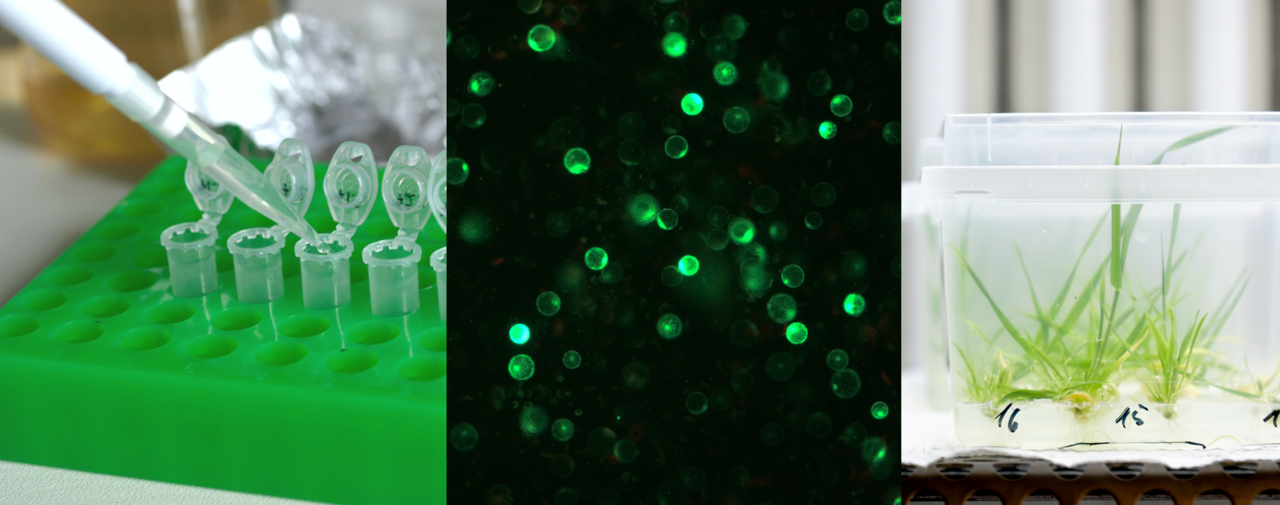Biotechnology and Genome Editing
Modern biotechnology for plant research and its application
The independent research group ‘Biotechnology and Genome Editing’ (BGE) is concerned with the development and establishment of the latest methodological approaches in plant biotechnology, both for basic and application-orientated research.
The genetic diversity of crop plants is becoming increasingly better to visualise using modern sequencing methods. Biotechnology plays a key role in the functional analysis of different genes and their allelic variants. Well-established genome editing approaches such as targeted mutagenesis with Cas endonucleases from the bacterial CRISPR system make an important contribution here, but are still limited by a certain randomness of the resulting gene sequence. The independent research group BGE is therefore developing more precise and efficient methods of genome editing that allow gene variants to be reproduced exactly. The aim is to make the genetic diversity of crop plants easier to research and to utilise for breeding purposes.
The establishment of the group is based on funding from the Federal Ministry of Research, Technology and Space (BMFTR) as part of the research programme ‘Modern breeding research for climate- and location-adapted crops of tomorrow’.
scroll top
Projects
Project PROGRESS: Precision and Optimisation of Genome Editing for Resilient Crops
Genome editing allows the targeted modification of plant genes. This involves targeting a specific site in a gene with molecular scissors, cutting the DNA strand at this point and then repairing this cut using the cell's own repair mechanisms. However, this allows the location of the genetic change to be precisely controlled, while the result, i.e. the resulting genetic sequence, is left to a certain randomness. The simpler applications of genome editing usually result in small deletions or insertions, i.e. individual letters are lost or added during the repair of the DNA cut. This means that genes can be switched off very efficiently, but their function cannot be precisely altered. PROGRESS aims to make genome editing even more precise based on a previously little-used DNA repair mechanism and to make existing developments more efficient by improving the gRNA.
scroll top
Staff
scroll top
Publications
appear later
scroll top

